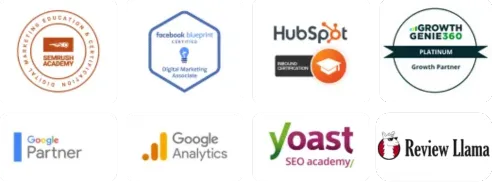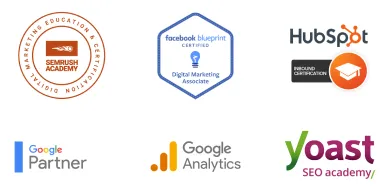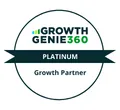TO LEARN IS TO GROW
Learning Center
We do our research and publish our results. Should probably call this the Growing Center.


Search Engine Optimization (SEO) in 2020: 24 Tips From The Top Experts
SEO is ever-changing. Ask any search engine professional or digital marketer worth their salt and they’ll tell you how different things were from three, five, or ten years ago.
In fact, for many a search engine optimization practitioner, staying current and up-to-date with the latest developments in SEO is the name of the game.
As part of a continuing effort to deliver the best possible results to any given search query, search engines must evolve with the times as well. A lot of factors come into play, including how and when users start keying in their queries, which devices they use to search, and how they respond to and interact with search engine result pages.
Every year, digital marketing professionals turn to the thought leaders of SEO and ask this same question: how different will SEO be this year, and what does it mean for my company?
The good people over at Search Engine Journal have identified ten key areas of SEO well worth paying attention to, with industry experts weighing in on the future of search.
On User-Focused Optimization
Google rolled out the BERT algorithm update in 2019, taking a huge leap forward in terms of making search more intent-centric rather than focusing on keywords and key phrases.
SEO professionals are now scrambling to learn how to better optimize for BERT, but it all boils down to reassessing how your target audience uses search and then aligning your content better throughout the buyer’s journey.
1. “Content will truly have to be written to user intent rather than just strings that a user might search…In 2020, the really smart SEOs will get up from their desks to talk to customers so they can find out what their audience really wants from them.”
— Eli Schwartz, Growth Consultant, and Advisor.
2. “Now, more than ever, companies are going to have to stop treating SEO as a condiment that they just add on to their digital strategy, and instead treat it as a key ingredient of their business plan. SEOs are going to have to grow their skillsets to understand the full marketing and digital stack. It’s going to be less about fixing SEO issues and more about fixing marketing and business issues.”
— Ryan Jones, SEO Group Director, Publicis Sapient
3. “Too many brands forget or fail to realize what it takes to attract and impress potential customers. They want real value. Just like in a brick-and-mortar establishment, customers want to know that you’re on their side, that they can trust you, and that you are a reliable partner in what is going to be a long-term– hopefully lifelong– relationship.”
— Sam Hollingsworth, Director of Search, Elevation Ten Thousand
4. “In 2020, I recommend you go and sit down with your customers. Talk to them, ask them to tell you about their journey to purchase, how they used search, what they thought of your site. Use that data in every decision you make.”
— Sarah Gurbach, Senior Account Manager, Search and Audience Insights, Seer Interactive

On Optimizing Content
High-quality content always has been and will continue to be the driving force of good SEO. Targeting individual keywords is a practice that has become even more obsolete, and the focus now is on topics: creating clusters of content that are genuinely helpful while also meeting business objectives.
5. “The goal of switching the mentality (from chasing individual keywords) to more of a topic-focus is to create content that addresses an entire conversation holistically as opposed to just worrying about the single keyword a page should be targeting.”
— Jesse McDonald, Global SEO Strategist, IBM
6. “In a way, the key to staying successful in search marketing 2020 is the same as it ever was – put out good content, with consistent brand messaging, in all your channels. As the search engines become evermore adapted to natural language understanding, the best-written content – in all forms – will win the day.”
— Michelle Robbins, VP Product & Innovation, Aimclear.
7. “I’d recommend auditing all of your content for overlapping rankings and merging, redirecting, and archiving as needed so every page ranks for a unique set of keywords. If your website covers the same topics again and again, even if you’re covering these topics from different angles, your pages are going to knock each other out of the results.”
— Aja Frost, Head of Content SEO, HubSpot
8. “Do your homework, and never write content just to have content on a page! Create unique content that is helpful and targets your specific prospects/ buyer personas at each of the stages of the buyer’s journey. If your content is not going to be sincere, don’t bother writing it. Being intentional with what is written is crucial for search marketing in 2020.”
— Eric Lay, CEO/ Co-Founder, LOJO Marketing
On Your Overall Reputation
Google will continue to assess your overall reputation as well as expertise, authoritativeness, and trustworthiness (E-A-T). Trustworthiness, in particular, is going to be even more important in 2020 as a means to combat thin content, fluff, and fake news sources.
The offline is now coming online, and every business needs to quickly figure out its advantage over its competitors and bring that to the forefront.
9. “Companies that struggle with a poor reputation, customer service issues or other trust issues will have a harder time competing. These trust issues not only manifest themselves as reviews and feedback about your brand, but they also take the form of technical or security issues on your site.”
— Lily Ray, SEO Director, Path Interactive
10. “There will be a strong focus on quality content and fighting against fake news. It will be more important than ever to focus on the trust value of authors (verifying authors and showing their authority for particular subjects) and sites as a whole.”
— Grace Kindred, Junior Technical SEO Analyst, News UK
11. “With entity-based search, the Knowledge Graph and the rise of E-A-T, our capacity to create an accurate and convincing online representation of our offline world will become a major differentiating factor. All those offline events, conferences, awards, partnerships, etc. that Google cannot see suddenly take on enormous importance. Pull them online and push them to Google to feed its need for understanding and credibility.”
— Jason Barnard, Owner, Kalicube.pro

On the User Experience
UX is quite possibly the biggest trend that SEO professionals should focus on for greater success. While we do consider the overall user experience on a site, site speed and page speed will continue to play a major role.
12. “(UX) includes the overall experience from the initial interaction in the SERPs, to the overall landing page experience, and even the experience after they leave your site (think remarketing, drip campaigns, personalization for returning users). Think about how you can help your users have the best possible experience while truly pondering what value you can provide to them during their visit.”
— Brock Murray, Co-founder, seoplus+.
13. “While I believe Google will do a lot to compensate for our site’s own poor technical foundations (e.g., canonical corrections, hreflang corrections, etc.), it’s going to become increasingly more important for SEOs to focus on shoring up their technical foundations. I don’t think it’s accidental that Martin Splitt (Developer Advocate at Google) spends as much time as he does promoting good technical best practices from Google’s perspective. We should consider that a signal in and of itself.”
— Keith Goode, Senior SEO Strategist, IBM
On Mobile SEO
Not enough companies put emphasis on optimizing for a mobile audience. Mobile-site firsts are a must these days, but it’s also important to look at how users interact with mobile search engine results.
14. “All of your online reporting must reflect insights into your mobile performance as a priority. Instead of visualizing a person sitting at a desktop computer you have to realize that most of the time people will find your website via a mobile device.”
— Kris Jones, Founder / CEO, LSEO.com
15. “SEOs need to be looking at real, mobile search results, to know what they are up against, what kind of traffic they can expect, and what kind of optimization will actually be successful at impacting the bottom line.”
— Cindy Krum, CEO, MobileMoxie

On Structured Data
Even as high-quality content continues to be of prime importance for SEO professionals, helping search algorithms make sense of your posts and pages through structured data also helps with your overall rankings.
16. “Done right, structured data becomes your marketing data layer. It will allow you to publish your content for any machine/search engine/voice assistant/chatbot with context to provide service to your customers across any surface and at any moment of interaction. Smart SEOs will start leveraging their structured data to enhance their analytics so that they can gauge what part of their content is driving results and use this data to influence content strategy, marketing strategy, product features and more, across their companies.”
— Martha van Berkel, CEO, Schema App
17. “Structuring the data (based on a searcher’s intent)… helps search engines to better understand not only what is on a page, but also how each element relates to other elements on the page, and how that page relates to other pages within the website.”
— Jeremy Knauff, CEO, Spartan Media
On Entity and Knowledge Graph Optimization
One of the newest aspects of SEO today is entity-based search. It’s an entirely different topic that warrants further exposition, but the idea is that today’s search is moving towards real-world objects, ideas, and concepts.
Essentially, understanding entities and relationships helps search engines also understand intent. Giving search engines better context simply allows for better, more helpful results.
18. “Local SEO has been entity-based for years – you’ve always been able to rank local businesses even if they don’t have a website. Google is tracking real-world visits already and recently received a patent for using ‘quality visits’ as a ranking signal.”
— Greg Gifford, VP of Search, SearchLab Chicago
19. “If you publish original industry reports, compile new expert advice, and are among one of the dominant voices in the market, Google will start seeing you as an entity. It’s these entity-related signals that are going to help you keep ranking.”
— Alina Benny, SEO & Content Lead, Nextiva
On Link-Building and Brand-Building
Link-building has always been a critical element of good SEO. And with a more consumer-first approach, the shift can now lean more towards higher-quality links, which in turn, also helps in your brand-building efforts.
20. “Customers are getting smarter and they expect more when it comes to marketing. The more they trust you, the more they are willing to share your content, talk about you, and buy your products.”
— Casie Gillette, Senior Director of Digital Marketing, KoMarketing
21. “The responsibility will fall on SEOs to build links and media placements that drive traffic and push brand, not just links that help with search rankings. Now our link building activity has to be on-brand, or there’s a realistic chance that there won’t be any brand-building activity at all.”
— Carrie Rose, Co-founder / Creative Director, Rise at Seven
On Zero-Click Searches
It’s not enough to rank on the first page of search engine results anymore. These days, it’s all about establishing better SERP visibility so you can dominate zero-click searches.
Having your brand stand out through featured snippets, newer schema, image targeting, and favicon optimization all help boost your visibility.
22. “More and more brand marketing is happening on Google itself, and not necessarily on your website. Smart marketers will need to learn how to adapt and take advantage of this by getting more strategic about the information shown in search snippets.”
— Cyrus Shepard, Founder, Zyppy
23. “Ranking number 1 under a Knowledge Graph, Found on the Web or a Featured Snippet is different than ranking number 1 without those things. Similarly, even if you are not in Position 1, ranking just below a People Also Ask result or Interesting Finds will not get as much traffic, because those things look better and thus, drive more clicks in the search result. Further, I think we will continue to see more localization in search results, with more Map Packs, News and Events ranking and taking clicks from traditional organic rankings.”
— Cindy Krum, CEO, MobileMoxie
On SEO Automation
Learning programming languages (such as Python or R) helps make better SEO professionals. By automating more mundane, more repetitive tasks, you now free yourself to focus your attention on more important marketing tasks.
24. “SEO automation will free you up to harness the power of marketing fundamentals:
Branding.
Creating great customer experiences.
Storytelling.
Speaking your customer’s language.
Listening to your target market & providing thoughtful/timely responses.
Providing easy to consume content (in the way in which your users want it).
Being human.”
— Britney Muller, Senior SEO Scientist, Moz.
A Final Word on the Future of Search Engine Optimization
How different is SEO for 2020?
Search experts have weighed in on what the future holds for search engine optimization best practices and have shared their sage wisdom, giving us a better understanding of the industry today and where it’s all headed.
Even as Google continues to build a better search engine, SEO professionals must also acknowledge the growing importance of search intent, entity-based search, structured data, and user experience.
Some things, like coming up with high-quality content, quality link-building, and just being generally helpful to your target audience are still the building blocks of a good SEO effort for any brand or business.
Knowing about the latest in search engine algorithms is one thing, and knowing what new SEO strategies and tactics come out from these latest developments is another thing altogether.
For forward-thinking businesses, understanding how these affect their overall marketing strategies and formulating practical and realistic SEO solutions in response is key in ensuring future success.
Built for Growth. Backed by 25 Years of Trust.
For over two decades, LOJO has been a trusted partner to hundreds of businesses just like yours. Whether working directly with owners, managers, teams, or boards of directors, our goal remains the same: to be a reliable and results-driven asset to your business.
Over the years, we’ve carefully built a team of experts—each selected for their unique skills, strengths, and personalities. Our clients choose LOJO because they know we genuinely care about their success.
And after 25 years of helping businesses grow, we’re more committed than ever.


Built for Growth. Backed by 25 Years of Trust.
For over two decades, LOJO has been a trusted partner to hundreds of businesses just like yours. Whether working directly with owners, managers, teams, or boards of directors, our goal remains the same: to be a reliable and results-driven asset to your business.
Over the years, we’ve carefully built a team of experts—each selected for their unique skills, strengths, and personalities. Our clients choose LOJO because they know we genuinely care about their success.
And after 25 years of helping businesses grow, we’re more committed than ever.




Matthew Rogers, President
iProspect Check
After spending several months reviewing multiple proposals from several different companies we engaged LOJO to develop a new website that represents our company effectively. We worked initially with Stephen Platte who helped create the scope of the project. Stephen was knowledgeable and always followed up with me on time and as promised.
He "closed the deal" for LOJO with his professionalism, service orientation and easy going approach. Once we signed the contract we were introduced to Jay Kelly who would be the creative lead for LOJO. This was the most challenging part of the project for my company, as there was no shortage of ideas from our side. Jay managed the project flawlessly, and once we had all agreed to the design, Jay introduced us to Eric.
Eric Lay is one of the founders of LOJO. Eric took the design we had developed and brought it to life. We delivered content as quickly as he requested it. Eric kept the project on task and we responded by exceeding every deadline for content. In turn, once provided, literally not a day went by that Eric didn't add the content and take the next step. In just a few weeks we launched our new website. Eric is a pleasure to work with.
His positive attitude and consultative approach really enhanced the experience and made a big difference for us in the outcome of our project. We would welcome you to visit our website to take a look at the quality work of LOJO. We are very pleased with LOJO and look forward to working with them in the future as we pursue an aggressive SEO strategy."
After spending several months reviewing multiple proposals from several different companies we engaged LOJO to develop a new website that represents our company effectively. We worked initially with Stephen Platte who helped create the scope of the project. Stephen was knowledgeable and always followed up with me on time and as promised.
He "closed the deal" for LOJO with his professionalism, service orientation and easy going approach. Once we signed the contract we were introduced to Jay Kelly who would be the creative lead for LOJO. This was the most challenging part of the project for my company, as there was no shortage of ideas from our side. Jay managed the project flawlessly, and once we had all agreed to the design, Jay introduced us to Eric.
Eric Lay is one of the founders of LOJO. Eric took the design we had developed and brought it to life. We delivered content as quickly as he requested it. Eric kept the project on task and we responded by exceeding every deadline for content. In turn, once provided, literally not a day went by that Eric didn't add the content and take the next step. In just a few weeks we launched our new website. Eric is a pleasure to work with.
His positive attitude and consultative approach really enhanced the experience and made a big difference for us in the outcome of our project. We would welcome you to visit our website to take a look at the quality work of LOJO. We are very pleased with LOJO and look forward to working with them in the future as we pursue an aggressive SEO strategy."

Matthew Rogers, President
iProspect Check
The team at LOJO were wonderful to work with. They are well organized and very patient as we worked through our marketing strategy and developed a well thought out and clear action plan at a reasonable price. We will definitely be back for our future campaign needs."

Jon Crosby, Founder
Dazil

